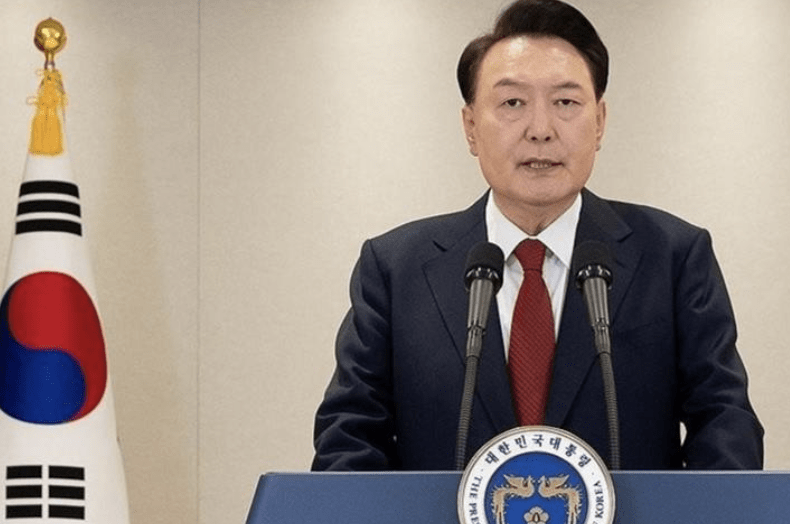
According to Yonhap News Agency, on December 31, the South Korean court issued an arrest warrant for President Yoon Suk-yeol in connection with the martial law incident that occurred in early December. This is the first time in South Korea's constitutional history that an arrest warrant has been issued for a sitting president, and it is expected to have significant political and legal repercussions. The High-ranking Officials Crime Investigation Unit (prosecution) is expected to go to President Yoon's residence soon to execute the arrest warrant.
South Korean court finds grounds for charges of insurrection! Arrest warrant issued for Yoon Suk-yeol
The warrant specialist judge of the Western District Court of Seoul approved the arrest warrant application submitted by the High-ranking Officials Crime Investigation Unit against President Yoon on the morning of December 31, and also issued a search warrant for the presidential residence.
The court believes there is a certain level of evidence supporting the suspicion that President Yoon is involved in insurrection and abuse of power. Although this is not the stage of conviction, it indicates that there is sufficient reason to suspect his involvement in related criminal activities.
The prosecution argues the necessity of a compulsory investigation
The prosecution pointed out that in order to prevent the National Assembly from passing a resolution to lift the martial law, President Yoon mobilized martial law troops and police to block the National Assembly and issued unconstitutional notices, which constitutes a riot aimed at undermining the country's constitution. Furthermore, the attempt to arrest and detain members of the National Assembly and officials of the Central Election Management Committee without an arrest warrant further indicates that compulsory investigation is unavoidable. The court accepted this argument and ultimately issued the arrest warrant.
Refusal to attend the summons makes compulsory detention unavoidable
The court pointed out that President Yoon rejected the prosecution's request to appear three times, indicating that compulsory detention is inevitable. The prosecution requested President Yoon's appearance on the 18th, 25th, and 29th of this month (as a final ultimatum), but all were refused. President Yoon even refused to accept the summons notification and did not provide a legitimate reason for his absence, which hindered the progress of the investigation.
President Yoon's side claims that attending the summons may threaten his personal safety and affect accompanying security, but the court did not accept this statement.
The controversy regarding the legality of the prosecution's investigation has come to an end
President Yoon's side previously claimed that the prosecution had no right to investigate insurrection crimes, making the issuance of the arrest warrant an illegal act. However, the court ruled that the prosecution's investigation into the abuse of power is legal and found that the investigation related to the suspicion of insurrection also has a legal basis. Thus, the controversy regarding the legality of the investigation has temporarily come to an end.
Executing the arrest warrant may lead to physical conflict
With the issuance of the arrest warrant, the prosecution is expected to go to President Yoon's residence in Hannam-dong, Yongsan District, Seoul, to execute the arrest. The validity period of the arrest warrant is usually one week, and it is expected to be executed within this timeframe.
However, since President Yoon is currently protected by the presidential security service, the process of executing the arrest may lead to physical conflict. In the past, there have been cases where political figures were unable to execute arrest warrants due to obstruction by supporters; a similar situation may arise this time.
This article first appeared in Lian News ABMedia, noting that it is the first time in South Korea's constitutional history that an arrest warrant has been issued for a president, with the court finding President Yoon Suk-yeol involved in insurrection.

